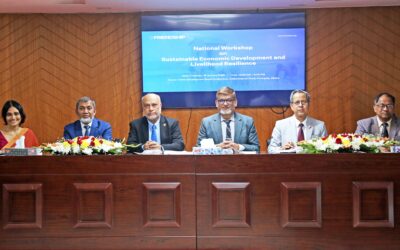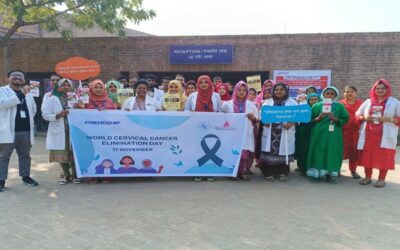Women from remote rural communities take agency over their lives and livelihoods with a little assistance from Friendship
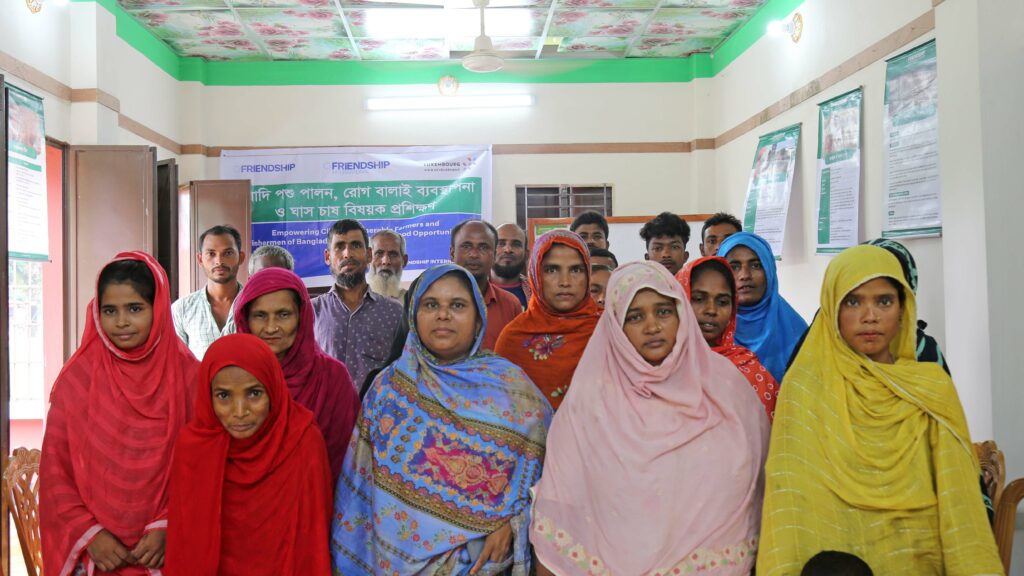
by Iffat Ara Sharmeen
21 September, 2025
Harsh climate-related issues plague the shifting char islands relentlessly. Despite bearing much of this brunt, women in the chars find new ways to live with courage, dignity, and hope.
In remote, climate-vulnerable areas, poverty is a vicious circle. When coupled with climate disasters and patriarchal norms, these communities usually have no way out of it. Unbalanced, traditional gender roles place women under increasing hardship with little to no autonomy. Friendship noted that they could transform their lives financially through training and the appropriate use of agricultural practices.
When Poverty is Unequal
Traditionally, women in rural Bangladesh spend more time at home fetching water, maintaining their households, cooking food, engaging in other domestic activities, and handling children. Apart from all this unpaid labour, they are heavily reliant on income from men in their families, with little to no income of their own. Men decide the fates of women and girls when it comes to education and financial emancipation, which leads to child marriage and female school dropouts.
However, women in Friendship Farmers Clubs found significant success in turning their lives around. Instead, they decided to actively contribute financially to their families and at the same time, gain wherewithal in the domestic matters.
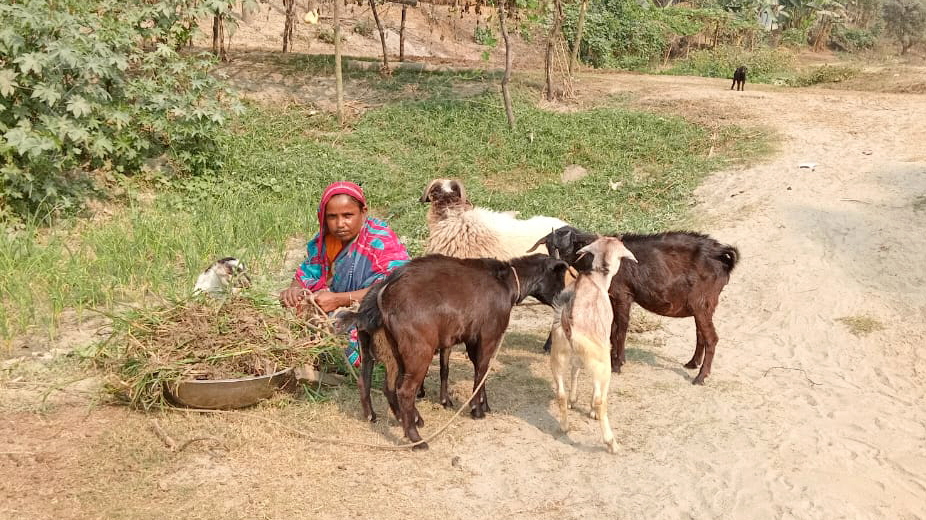
Unstoppable Icons
Rasheda Khatun from Char Kabilpur, Fulchhari, Gaibandha has seen life’s tragedies up close. After losing land to river erosion, she did not know how to survive with her family of four. In 2020, she took a desperate leap of faith and joined a Friendship Farmers Club nearby to receive training in Aman rice farming. She then started cultivating Aman rice by leasing about 2500 square metres of land, which helped meet her family’s immediate needs.
Rasheda sold excess rice and used the money to buy a cow, goats, chicken, ducks, and also tried her hand at sheep rearing. She even began mustard farming, and also cultivates Boro rice and BRRI-88 rice. Through diverse agricultural practices, she gained social standing and respect from her family and neighbours, and became known as an unstoppable force in the farming practices of her community.
Alema Khatun has a school-going daughter, whose future worries her. She has known poverty, river erosion, and floods all her life. She found meaningful change after joining her local Friendship Farmers Club. The membership allowed her to receive training in home agricultural techniques, livestock farming, and poultry rearing.
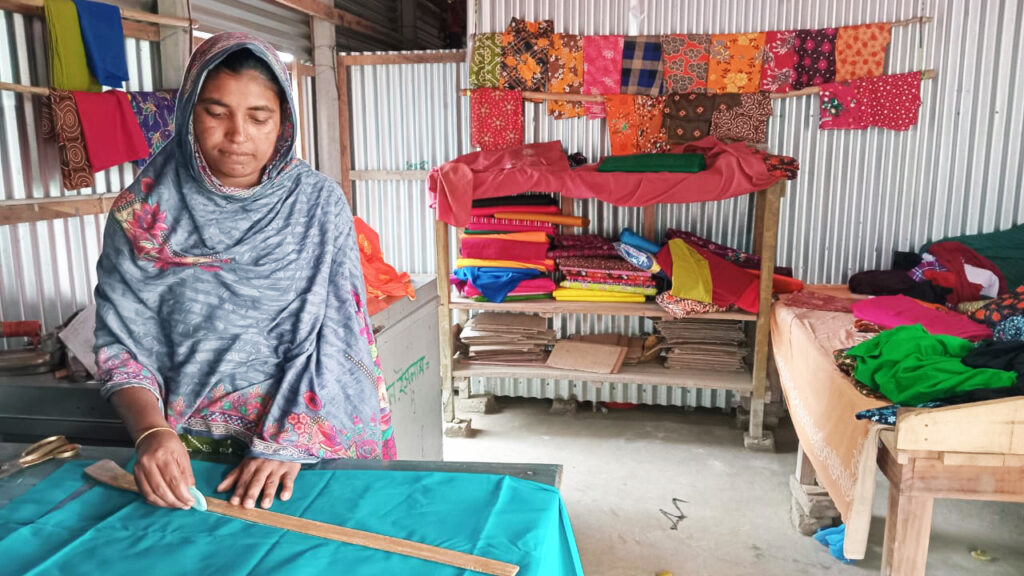
She started with poultry farming and sold eggs for a living, then tried her hand at vegetable farming at home, which allowed her to meet her family’s nutritional needs and earn extra income by selling the vegetables. Using the money earned from selling homegrown produce, she bought a cow and started tailoring services from home. She earns up to BDT 12,000 per month in addition to her husband’s income. Alema now runs a happy, financially solvent family.
An Inclusive, Participatory Solution
Friendship Farmers Clubs are networks of farmers governed by themselves where they exchange best practices, share resources, and receive guidance and training. This knowledge and these skills help mitigate the adverse impacts of climate change and empower farmers, especially women. There are currently 725 Clubs active. Each Club maintains a 60:40 female-male ratio, with women getting greater access to resources, decision-making, and income-generating opportunities. This also helps promote gender equity in livelihood activities in the chars.

